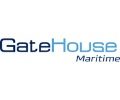

As part of the increasing demand for vessel monitoring to protect environmental resources and preserve valued habitats, the leading data and analytics firm, GateHouse Maritime, is happy to announce an order from the National Oceanographic and Atmospheric Administration’s (NOAA), National Centers for Coastal Ocean Science (NCCOS), via a grant from the California Marine Sanctuary Foundation. With the contract, GateHouse Maritime will provide data analytics to support vessel monitoring efforts related to whale conservation work to reduce the risk of ship strikes on endangered whales near the California coast.
To reduce the risk of ship strikes on endangered whales, GateHouse will use vessel location data to evaluate adherence levels to voluntary requests from NOAA and the United States Coast Guard (USCG) for large vessels (300 gross tons or larger) to slow down to 10 knots or less in designated Vessel Speed Reduction (VSR) zones off the coast of San Francisco and Southern California.
This solution will give NCCOS new tools to perform real-time monitoring of the VSR zones off of California and increase the speed and accuracy with which they can analyze historical vessel data. These insights will help NCCOS to decide how best to protect environmental resources and improve the way communities interact with the vulnerable coastal ecosystems.
In support of this real-time monitoring effort, Gatehouse is relying on Amazon Web Services (AWS) to help process and store the enormous amounts of data it will collect. Gatehouse’s solution leverages Amazon Elastic Compute Cloud (Amazon EC2) for compute and storage, as well as AWS Well-Architected to optimize and improve its architecture. Gatehouse Maritime is a Technology Select-tier member of the AWS Partner Network (APN).
“NOAA sees the GateHouse Maritime data solution as a step forward on their way to getting more out of their data. They are excited to improve their prospects of obtaining the information they need to assess resilience within coastal communities and ecosystems, which will help them with e.g., reducing the risk of ship strikes on endangered whales,” says Joel Box, Sales Director of GateHouse Maritime.
In addition to NCCOS, the National Ocean Service has four other US government program offices utilizing automatic identification system (AIS) data in some form, including the Office of Coast Survey, the Office of National Marine Sanctuaries, the Office of Response and Restoration, and the U.S. Integrated Ocean Observing System.
“With this cooperation, we provide NOAA with an advanced ocean data solution featuring an almost endless scalability to manage even larger volumes of data, as the AWS platform will suit this purpose perfectly,” says Joel Box and continues:
“When monitoring of vessels in the VSR zones in real-time and analyzing historical data to determine adherence to vessel speed reduction guidelines, a solid data foundation will be key to efficient protection of environmental resources and to prevent the risk of vessel strikes on endangered whales. GateHouse Maritime is delighted to provide the data and the tools to help the NCCOS fulfill this purpose.”
National Oceanographic and Atmospheric Administration (NOAA) holds key leadership roles in shaping international ocean, fisheries, climate, space, and weather policies. NOAA’s many assets — including research programs, vessels, satellites, science centers, laboratories and a vast pool of distinguished scientists and experts — are essential, internationally recognized resources. NOAA works closely with other nations to advance their ability to predict and respond to changes in climate and other environmental challenges that imperil Earth’s natural resources, human life, and economic vitality.
Source: GateHouse Maritime